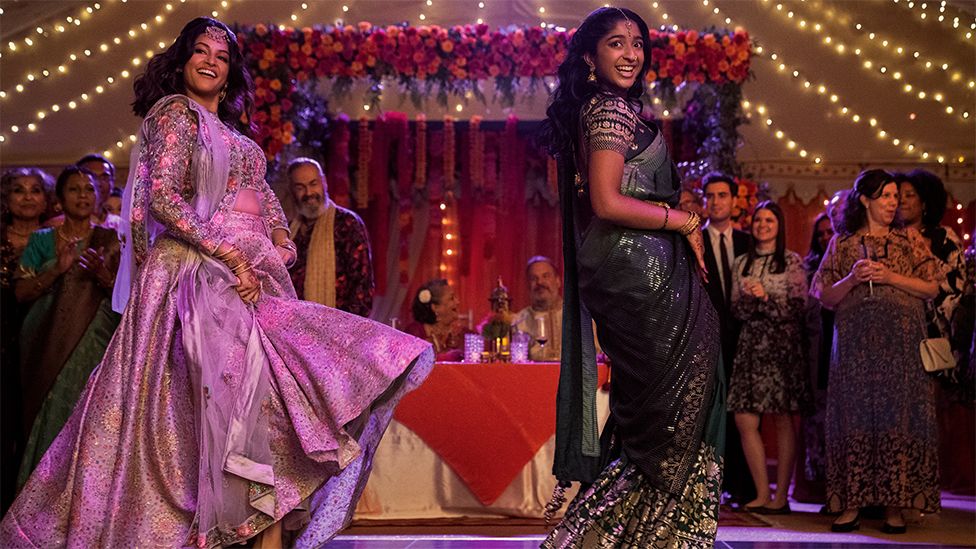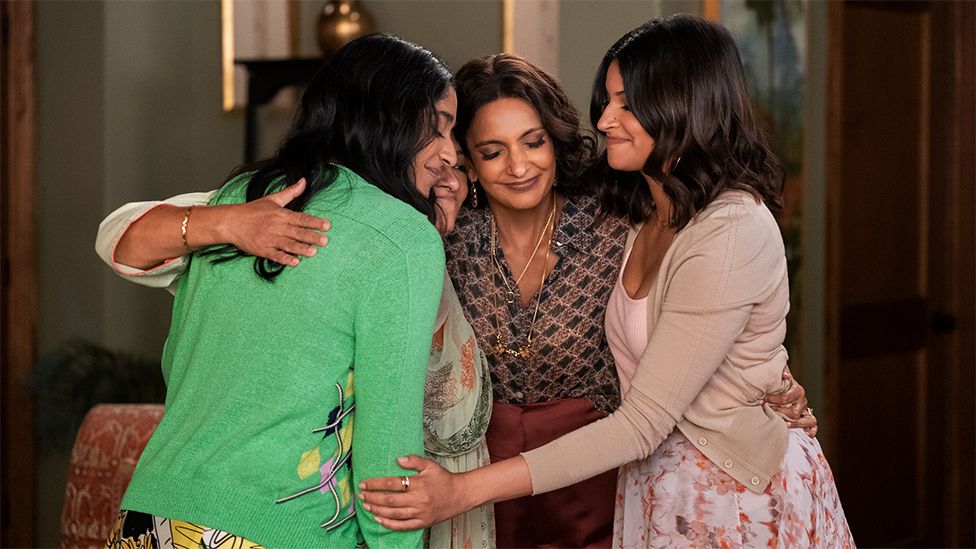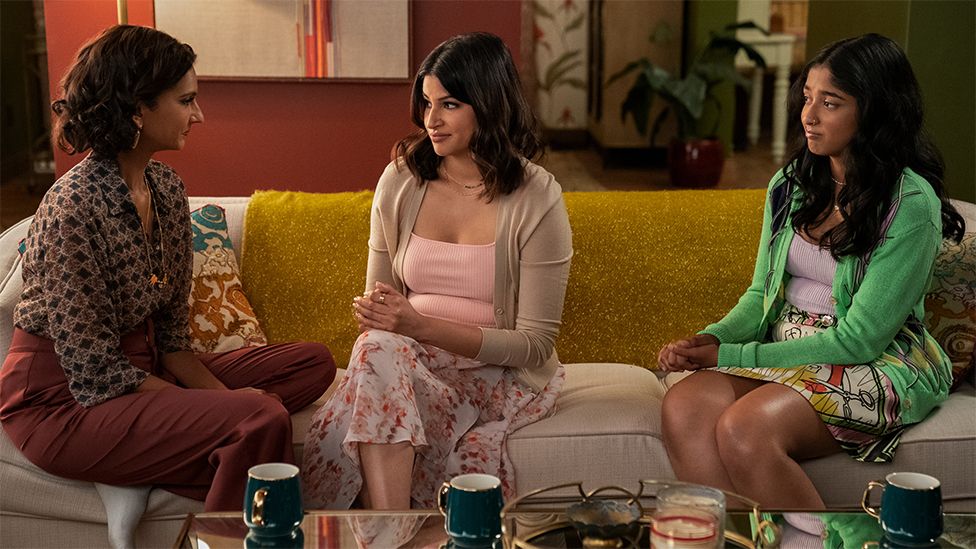Communities all over the world are interested in seeing themselves represented on television in a well-liked show.
Fans have praised Never Have I Ever, one of Netflix's top 10 shows, for evoking that emotion in them.
Poorna Jagannathan tells BBC Asian Network that she feels fulfilled and that she is reflected somewhere.
She portrays Devi Vishwakumar's mother, Nalini, in the lead role.
Devi's adolescent journey is the subject of the program, which debuted its fourth and final season this month. This article contains minor spoliers, in case you haven't caught up.
However, each character is "given the space, background, and history" that is typically saved for the lead, according to Poorna.
According to her, viewers "don't get to know these characters of color as well as you do the white lead" in most cases.
The diversity of the program made it "a dream project to be a part of," according to Richa Moorjani, who plays Devi's cousin Kamala.
With the cultural aspects, LGBTQ+ storylines, and disability storylines, there are many diverse storylines, according to her.

In the past, many shows have featured Indian or South Asian families in their casts, but they have typically tended to be generic, according to Richa.
They simply have Indian accents, but she adds that it is unknown where in India they originate from, what language they speak, or what customs they follow.
However, Never Have I Ever makes specific mentions of Tamil culture, which was particularly significant to Richa. The majority of the ethnic group's ancestors came from Sri Lanka and southern India.
She makes reference to the third season, which features the Golu Festival, a celebration that happens for people in south India.
"Throughout my entire childhood, my family has celebrated that. It's difficult to describe how something feels when you see it on screen. ".
Poorna concurs, saying that due to the lack of traditional customs and ways on television, such as eating with your hands, they can feel "embarrassing.".
When you demonstrate it, it becomes normal to see us all eating with our hands.
In addition to normalizing it, you start celebrating who you are and your origins.
You feel particularly close to something magical when you recognize yourself, hear words from your upbringing, and see people who eat similarly to your family. ".

The traditional dance that Devi and Kamala performed in the final season was another example of representation that won over viewers.
It is cited by Richa as one of her "most treasured memories on set" and is cited as an instance of Devi embracing her culture and identity.
She used to be reluctant to do that, as viewers of the show, particularly the first season, will recall.
It's lovely, says Richa, "because you can see how much she's changed and how much she's evolved.".
She continues, "because it could have easily just been a Bollywood dance, it was important to soundtrack the scene with a specific Tamil song.

Although there is still "very little representation," Poorna believes that the industry is becoming more diverse.
She recalls being made to feel like "a diversity hire" in the past by some casting directors, experiences that left her feeling irate.
Poorna claims that in order to "represent something of myself," she now searches for roles.
Building on the success of Never Have I Ever, she believes it's critical to "remain hopeful, keep creating but remain super-vigilant.".
She mentions how rights and advancements can be "taken away in no time," alluding to the Roe v. Wade ruling in the US, which effectively ended the constitutional right to an abortion for millions of American women.
"We have to not get complacent and feel like everything is OK now, because there is still a significant problem with racism and a significant lack of opportunity for us," says Richa. ".
The conclusion and the characters falling in love with white people has drawn some criticism.
Poorna, however, welcomes the criticism and claims it doesn't increase the pressure associated with playing a significant role.
The most accurate representation of themselves is what people want to see. The show, in my opinion, is just the beginning," she adds.
It's "just great to get the feedback, whether people love it or they don't," according to Richa.
"It's impossible for one show to give every single person on the planet a sense of representation.
"Having that expectation isn't necessarily unfair, in my opinion. But I also feel that it's simply unrealistic. ".
Check out Newsbeat on. Twitter. and . YouTube.
Tune in to Newsbeat. live. weekdays at 12:45 and 17:45 - or playback. here.







